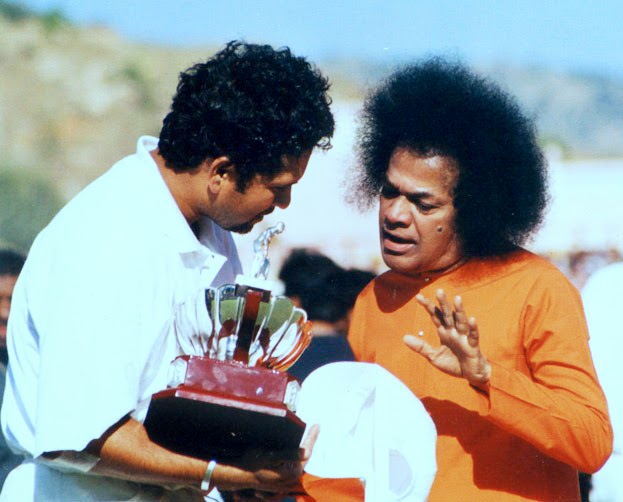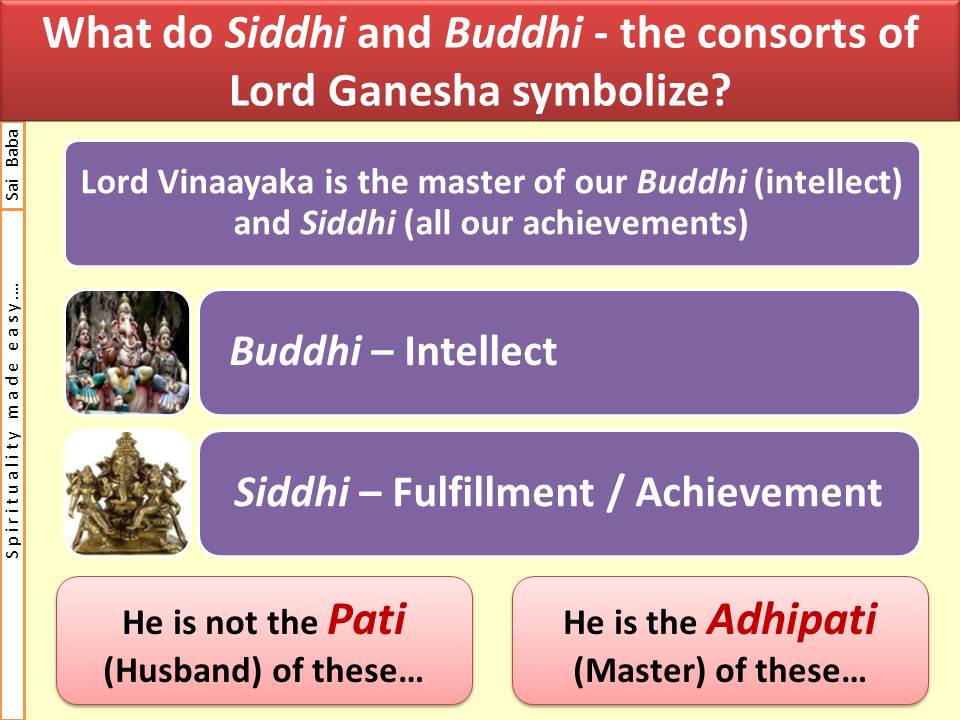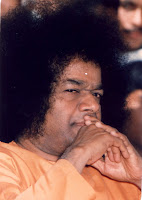This section of the blog presents a message of Bhagawan Baba every week. Mostly, it is the form of a question that is answered by Bhagawan, giving us the correct understanding and interpretation of a concept or a term or a practice. So watch out every Sunday for a special message from Bhagawan Baba that could serve as your driving force throughout the week. Wish you a happy week!!
There is a need for undertaking physical effort or exercises. That is why it is said that the one who puts in krushi(efforts) becomes a rishi (saint). It is necessary to follow a daily routine that includes studies, games, sports, prayers, etc. to keep the body fit. Health is wealth. Health is very essential for happiness. For health, games are very important. While playing games, we must follow the right path and protect the rules. We must not waste time. God being the very embodiment of time, we must experience happiness through action (utilization of time with proper action).
Many of you would have studied the epic Bhagavatham. In it, there is a story about a person named Dundhubhi. Students should get up between 4 am and 5 am and complete their morning ablutions, have their bath and engage themselves in their studies. Bhagavatham refer to those who get up, have their bath and go about their morning activities between 4 am and 5 am as those who have had Rishi Snaanam (saintly bath). Those who take their bath and perform morning prayers between 5 am and 6 am are referred to as those who have had Maanava Snaanam(human bath). Bath taken after 7 am is referred to as the Raakshasa Snaanam (demonic bath). Dundhubhi used to take his bath after 7 am. That is, he used to waste away and misuse the sacred Brahma Muhurtam time.
07 April to 13 April 2014
We keep saying, “meditation, meditation”. What meditation are we doing? We close our eyes and sit comfortably. However, the mind keeps wandering around to some washerman’s house or bazaar. Instead of performing mediation in this manner, it is better to engage in action, in service and undertake social work. Without knowing the secret of meditation, merely closing your eyes and sitting for any period of time will only bring you sleep but will never bring you Samadhi (true meditative state). Therefore, first of all, we need to understand what the mind is. Only then, we can control the mind.
31 March to 06 April 2014
If we wish that good thoughts express themselves in us, we need to enter into the spiritual path. Without doing so, we can never develop good and noble thoughts. We must associate ourselves with good company. Only when we join good company, we experience the contagious “disease” that these thoughts are affected with. Right from inception, thoughts have this “disease” of contagious nature. If we join the company of people with bad feelings, the bad feelings will get into us also. If we associate with someone who has anger, then the anger will surface in us also.
24 March to 30 March 2014
I recently told the students three important points. Do not make an attempt to walk in front of Me. Don’t walk in front of Me. I may not follow you. Don’t walk behind Me. I may not lead you. Still, walk beside Me and be My friend. If you make an attempt to walk in front of Me, you may possibly direct Me also on the wrong path, as you do not know the right path. In case you try to walk behind Me and follow Me, you may escape from Me and go away. Walk beside Me; then there will be no scope to escape from Me or go along the wrong path, because I am with you.
17 March to 23 March 2014
I ask a number of people, “Where is God, where is God, where is God?” Many people give the reply, “He is in me, He is in me, God is in me”. Some others say, “God is everywhere, He is omnipresent”. All these responses are mere spoken words. But how do we know that this is the real answer? This must come from experience.
10 March to 16 March 2014
Many people, especially in the West, desire for freedom, the freedom to act as they wish. What is freedom? Does freedom mean behaving as you please, wandering around as you please? No, no. Controlling one’s senses is true freedom. One may wish to get married. But does getting married lead to freedom? No, it leads to bondage, not freedom. How can this be called freedom? One may desire to drink a bottle of wine. But, when he consumes the drink from the bottle, he gets intoxicated. Then where is freedom? He loses control over his mind. How can this be described as freedom? Merely living and moving around as you please is not true freedom.
03 March to 09 March 2014
Love is the very nature of man. But we do not experience this love in an enduring manner. Soon after we are born, we love our mother. Once we grow and commence our education, we love our friends. Gradually as we grow in years and enter our youth, we love our wife (spouse). After a few more years, our love towards our wife (spouse) diminishes and we start loving our children. Once the children grow big and we need to assume greater responsibilities to nourish them, we start loving wealth. Thus, we keep changing the form of our love continuously. First the mother, then friends, then wife (spouse), subsequently children, following that wealth; this is how our love keeps on changing. But we must develop that love which does not change. The love of God does not change. We must make an effort to love God who is truth and eternal. Thus, in humanity, so many changes keep taking place. But In God, there is love that never changes. Such love for God, which is real and eternal, is called devotion.
27 February 2014
According to numerology, the word Shivaratri has four syllables in it – “Shi”, “Vaa”, “Raa” and “Tri”. As per the science of numbers, the number associated with the syllable “Shi” is 5. The number 4 is associated with “Vaa” and the number 2 is associated with “Raa”. These numbers 5, 4 and 2 add up to 11. This is referred to as Ekaadasa Rudra (11 Rudraas). Numbers are associated only with the three syllables “Shi”, “Vaa” and “Raa” However, these three syllables join together and give rise to “Tri”. That is, “Shi”, “Vaa” and “Raa” join together to form Tridalam, Trigunaakaaram, Trinetrancha Triyaayudham, Trijanma Paapa Samhaaram, Eka Bilvam Shivaarpanam. The triad gives rise to the fourth syllable “Tri”. Just like “A”, “U” and “M” join together to give rise to “Aum”, similarly, “Shi”, “Vaa” and “Raa” give rise to “Tri”. It is this triad that takes the form of the Ekaadasa Rudra.
24 February to 02 March 2014
Embodiments of love. Man is filled with bliss, he is the very embodiment of bliss. Being the very form of bliss, he attempts to derive bliss from the external world, in so many ways. When your very form is bliss, if you search for bliss in the external world, how can you get it? As it is said, “Sarvatra Paani Paadam” – His Hands and Feet are everywhere. In the same way, God is in the form of bliss everywhere.
17 February to 23 February 2014
We have instituted four important practices in Ceiling on Desires. The first one is “Don’t waste money”, because misuse of money is evil. We should not misuse money. The second one is “Don’t waste food”; food is God. We should not waste food. The third one is “Don’t waste time”. This is very, very important. Time is everything. Time waste is life waste. You are all wasting lot of time (outside the Ashram). You may sit together, read some sacred texts, sing Bhajans, or learn some devotional songs. But instead of this, if you roam around the roads outside, it is such a waste. Is it not, you tell me. Thus, you are wasting lot of time. Next, “Don’t waste energy”. You waste energy through seeing and through talking all the time. Therefore, you need to reduce unnecessary talk, unnecessary seeing and unnecessary roaming.
10 February to 16 February 2014
Our entire life may be compared to a field of business (a limited company). If the temperature of our body (ideal temperature being 98.6 degrees Fahrenheit) rises beyond 99 degrees Fahrenheit then it results in diseases (like fever). Our blood pressure is supposed to be 120 / 80 mmHg (millimetres of mercury over normal atmospheric pressure). If this (diastolic pressure) goes beyond 90 mmHg, then it results in high blood pressure. Even our eye balls can see only limited amount of brightness of light. If it goes beyond a point, the retina will get burnt. Our ear drums too cannot withstand sounds of any decibels. If it hears sound beyond certain decibels, the ear drum will get damaged or will burst. Thus, our human body is like a limited company. To protect such a body we need to exercise certain limits. There must be moderation in the food that we eat, water that we drink, words that we speak and sounds that we hear. Our entire life needs to operate within certain limits. When we exceed the limits, we are subject to danger.
03 February to 09 February 2014
Because the human beings get associated with dehaatmabhaavam(the feeling that I am the body), the aham(ego) makes it go round and round in so many ways (takes it for a real good ride). Distorted feelings such as “I am doing this”, “I am experiencing this”, “I have gained this victory” are on the rise day by day in humans.
27 January to 02 February 2014
We experience the mutual interrelationship and interdependency of our limbs in our day to day life. Suppose we are walking on a street. The eyes are up and the legs are down. The eyes see a thorn on the street. We may not understand their interrelationship from outside. But they have an inner connection. We do not know how and when it has communicated? What type of phone or telegram it has used? But the moment the eyes see the thorn, the legs cross over the thorn and walk by. Legs do not have eyes. Then, how have they crossed over the thorn? The eyes have seen, but the legs have crossed over it. This is the close relationship that exists between the eyes and the legs.
20 January to 26 January 2014
Every human body is a workshop. The physical body is like a machine. The physical body works effectively like a machine because it recognizes the role played by every limb of the body and the interrelationship that exists between them; and acts accordingly. In this machine of the body, every organ has a specific role to play in mutual relationship with other organs. It is not just a passive mutual relationship between the limbs; they actually share their joys and sorrows with each other. In this workshop of the human body there are many desires and attachments. There is unity among all the limbs. This principle of unity, i.e. the principle of living together, sharing and caring for each other, is taught by the human body. Once we introspect and investigate into this workshop of the human body, we would not need to look into any other workshop.
13 January to 19 January 2014
You may think that we have started this Education in Human Values some 5 or 6 years before. I started this more than 50 years back. When I was in the house of Karnam Subbamma, I used to sing a particular song as part of the Bhajans.
06 January to 12 January 2014
 |
| Mere listening to Vedic chants gives joy!! |
Today we are neglecting the Vedas, making fun of it. We have no faith in it and consider it as merely some sort of chanting with no specific significance or use. Embodiments of love, it is ok even if you do not know the script of the Vedas, it is enough if you merely listen to the chanting. There is great happiness is mere listening.
30 December 2013 to 05 January 2014
Happiness, prosperity and pleasure are not conferred on us by the New Year. This day too shall pass away like any other day; the same sunrise and the same sunset. Many people look forward eagerly expecting that the New Year will confer on them some good results. This is 100% negative thought. The New Year does not bring anything for us. Just based on the calendar, we consider this as a New Year.
29 March 1998
23 December to 29 December 2013
Jesus was one with a pure heart. To begin with, Jesus proclaimed, “I am the messenger of God”. Taking the physical body as the messenger, he engaged in tasks and activities related to the body. Regarding the body as a messenger sent by God, he offered his body to relieve the pain and suffering of the sorrowful and the downtrodden. He started spreading the message to the people though the actions of his body.
16 December to 22 December 2013
Even in the domain of time, we have Satva, Rajasand Tamas. From night 8 pm to morning 4 am, it is Tamasic time. Even birds and animals sleep during this time period. This is defined as the time for the demons. This time period is very powerful for the demons (demonic qualities in man). This time slot is very conducive for carrying out Tamasic activities. Therefore, the 8 hours period from night 8 pm to early morning 4 am is Tamasictime.


































.jpg)































